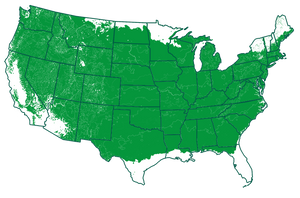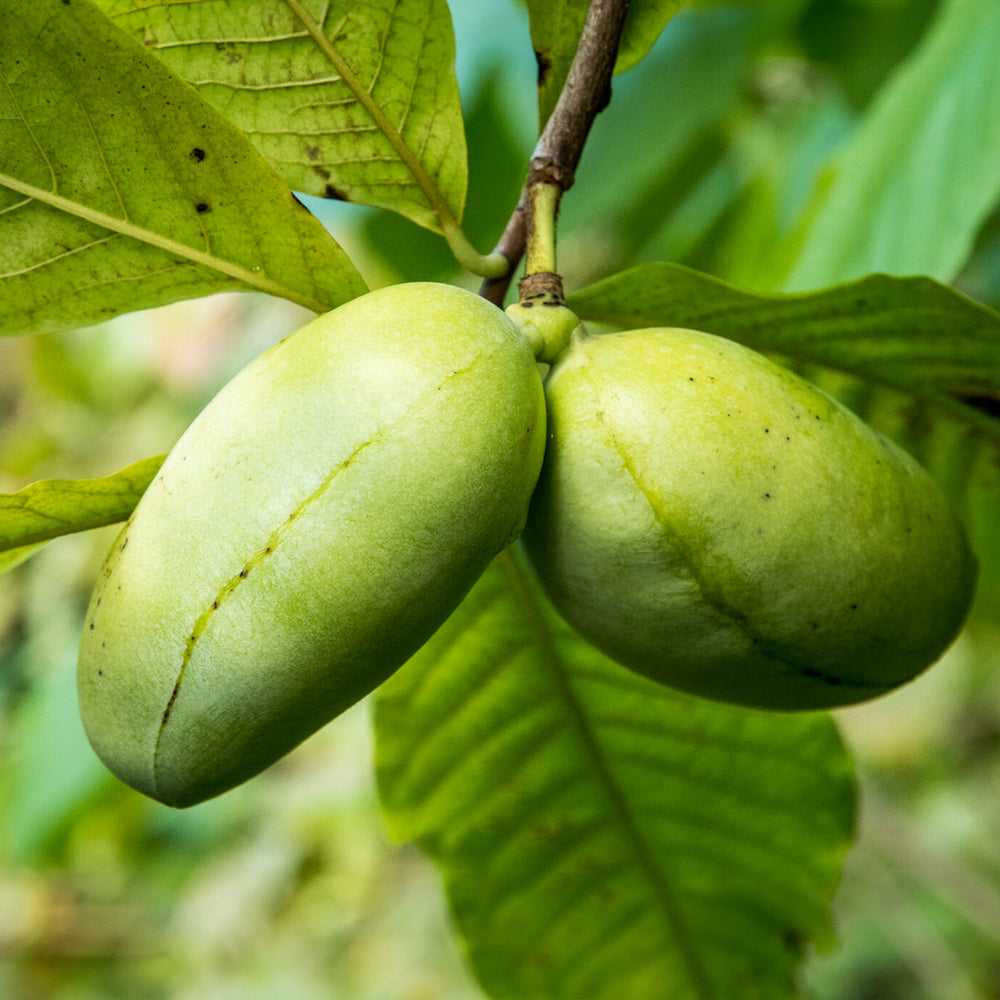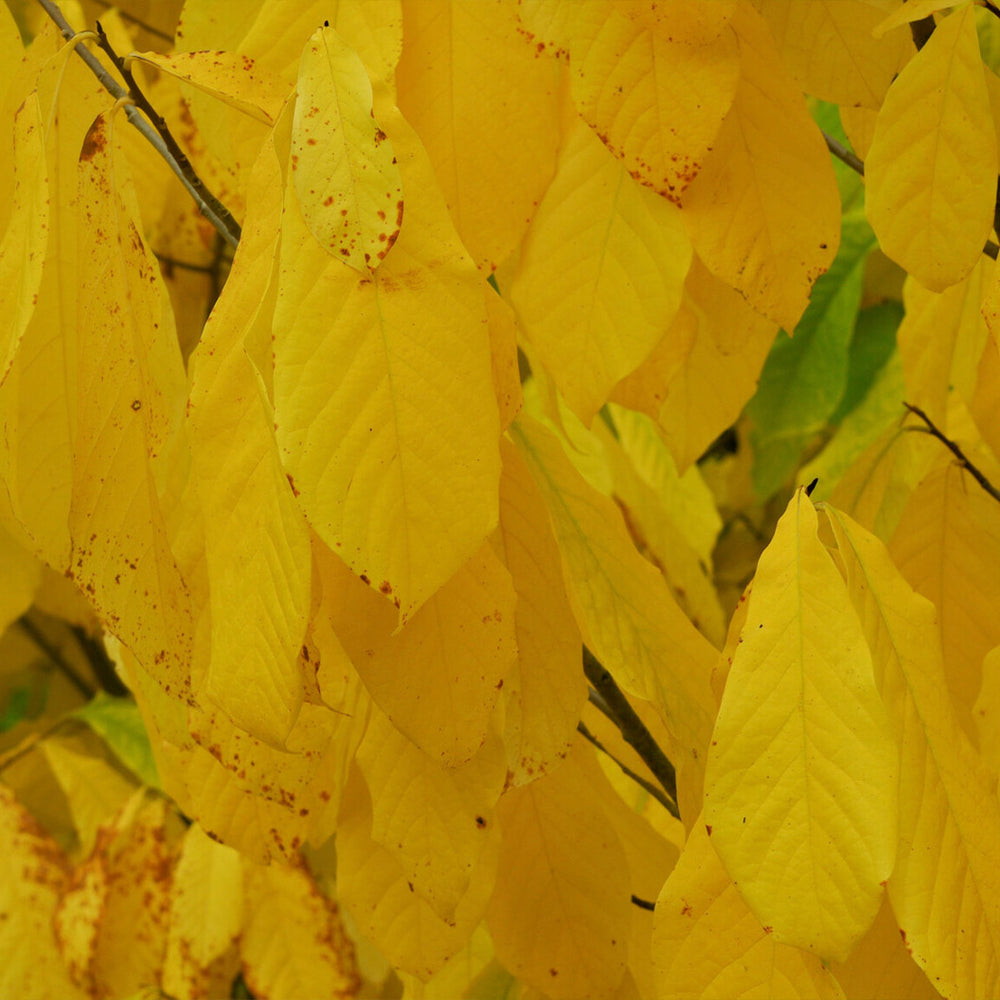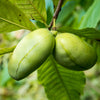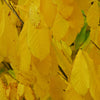* Images shown are of mature plants

Have questions? Talk with our Plant Experts (800) 973-8959
Cold-Hardy Mango Plant With Fruit the Flavor of Vanilla Custard
The Mango Paw Paw Tree is perfect for growing tasty, sweet mangoes in your own backyard. This variety is cold-hardy and heat-tolerant, giving you years of delicious fruit.
This tree produces mangoes that taste like vanilla custard for a truly unique fruit that you'll want to try! Plus, the seeds are easy to remove, so you can use them for homemade fruit salads, smoothies, and so much more.
This tree also pollinates with other Paw Paw trees, so you can enjoy bounties of fresh fruit without ever leaving home. You're going to love this large, flavorful produce that ripens in October.
If you want to turn your backyard into your own mango grove, then buy the Mango Paw Paw Tree today!
Pollination Info
Mango Paw Paw Pollination
Cross-pollination by a different variety is key to its growing and bearing success.
Planting & Care
1. Planting: Pawpaw trees have the potential to produce fruit in the shade, but due to their large leaves, they will yield the best results when grown in a sunny location and protected from strong winds. The soil should be slightly acidic (pH 5.5-7), deep, rich, and well-draining. It's important to shield young trees from sunburn during the intense afternoon sun by placing them near a fence or shaded area.
2. Watering: Pawpaws thrive in rich, well-drained soil with a slightly acidic to neutral pH. They need about an inch of water per week over the root zone. Water once a week or twice if the soil drains quickly.
3. Fertilizing: Remember to use a balanced fertilizer such as organic fruit tree and shrub fertilizer. Applying well-rotted compost can also be effective. You can use concentrated products like chemical fertilizers from late winter through early summer, but avoid applying fertilizer after early summer to prevent excessive soft new growth that can be damaged by winter cold.
4. Pollination: It's best to plant two different varieties or a combination of seedlings and varieties to ensure cross-pollination. Space the trees as close as 6 feet apart or in 14-foot circles, as pollination works best when trees are near each other. If you're ordering a grafted plant, choose a different variety of pawpaw for pollination. The pawpaw or native pawpaw are seedlings that will cross-pollinate each other. For example, two seedling Mango pawpaw trees will pollinate each other, but two grafted Mango pawpaw trees will not.
5. Harvesting: The Paw Paw will be ready to eat when it is easily plucked from the tree. Paw Paws that are too ripe can have an astringent taste, so don’t wait until they’ve fallen.
Shipping Details
Estimated Shipping Time: Most orders ship immediately. As noted on the website, some items are seasonal, and may only ship in spring or fall. Once your order is shipped, you'll receive an email with a tracking number.
| Amount of Order | Shipping Charge |
|---|---|
| Less than $49 | $19.95 |
| $49 + | FREE SHIPPING! |
Product Details
| Mature Height: | 10-15 ft. |
| Mature Width: | 15-25 ft. |
| Sunlight: | Full Sun, Partial Sun |
| Growth Rate: | Slow Growing |
| Botanical Name: | Asimina triloba 'Mango' |
| Does Not Ship To: | AK, AZ, HI |
| Grows Well In Zones: | 4-8 outdoors |
| Your Growing Zone: | # |
